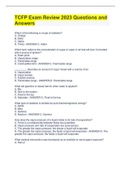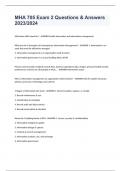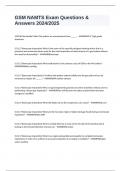Contents
1. The Grounds of JR - an Introduction
2. Illegality
2.1. The General Principle: The delegation of powers that have already been delegated is not
permitted
2.2. The Exceptions: delegation is permissible within local authorities or by Ministers to their
departments
2.3. Public Bodies that have discretionary powers may to fall afoul of their duties if they consider
themselves to be bound by others’ views
2.4. Failures to apply discretion:
2.5. Limitations to the use of discretion
3. Irrationality
3.1. Diplock’s definition
3.2. Criticism of Wednesbury unreasonableness
3.3. The ‘sliding scale’
3.4. Anxious Scrutiny
3.5. Criticism of Anxious Scrutiny
4. Proportionality
4.1. Balancing act
4.2. Not native to the common law
4.3. Widely used in EU matters
4.4. Difference between Proportionality and Irrationality
5. Procedural Impropriety
5.1. Definition
5.2. Meaning of ‘fairness’
5.3. When is it to be used?
5.4. Cases involving procedural fairness
5.5. Is procedural fairness the same as substantive justice?
6. Trends in the development of the Heads of JR
6.1. Formalist vs Substantivist review
6.2. The shift towards substantive review - anxious scrutiny and the HRA 1998
6.3. The move from Wednesbury irrationality to Proportionality
6.4. Substantive fairness is taking precedence over procedural fairness
7. Case Notes - Judicial Review











